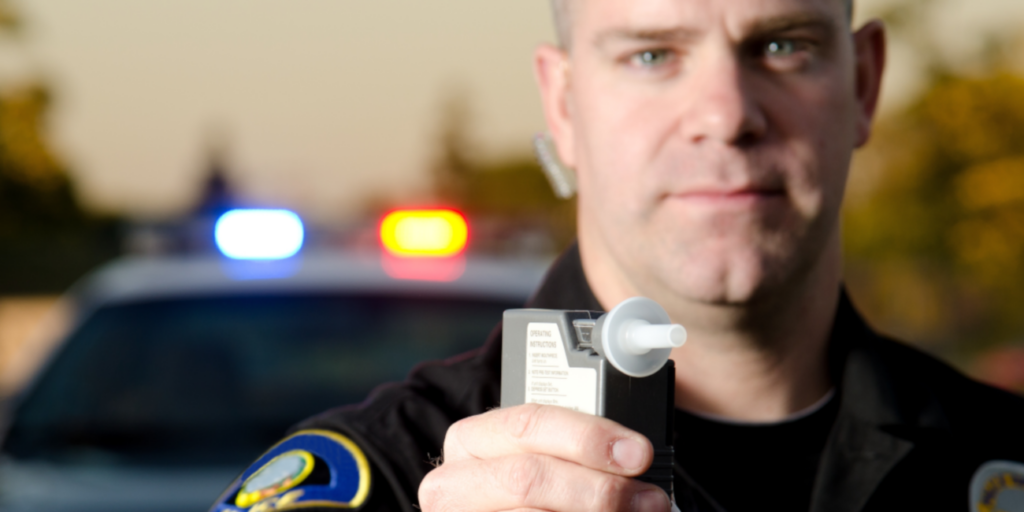
Dealing with DUI bail bonds in California can be a complex and daunting process for those facing charges. This blog post aims to provide an in-depth understanding of the intricacies involved, including county-specific schedules for setting bail amounts and the differences between posting cash bail versus seeking assistance from a bail bonds company.
We will also explore the role of bail bondsmen in DUI cases, shedding light on how they secure release through collateral and factors affecting their fees. Additionally, we’ll discuss the Own Recognizance Release Program designed for low-risk defendants and its eligibility criteria.
Furthermore, this post will delve into recent changes in legislation that affect pretrial releases, such as Senate Bill 10’s provisions and potential effects on future DUI cases. We’ll examine costs associated with bailing out after being charged with a DUI, consequences of failing to post bail, as well as legal representation options when navigating the court system.
Lastly, we’ll emphasize preventative measures one can take to avoid future DUI charges by designating sober drivers or using rideshare services while also highlighting increased penalties faced by repeat offenders. With this comprehensive guide on DUI bail bonds in California at your disposal, you’ll be better equipped to handle any challenges that may arise during this trying time.
Table of Contents:
- Understanding DUI Bail Bonds in California
- The Role of Bail Bondsmen in DUI Cases
- Own Recognizance Release Program for Low-Risk Defendants
- Changes in Legislation Affecting Pretrial Releases
- Costs Associated With Bailing Out After Being Charged With DUI
- Legal Representation and Navigating the Court System
- Preventing Future DUI Charges
- FAQs in Relation to Dui Bail Bonds in California
- Conclusion
Understanding DUI Bail Bonds in California
Getting arrested for DUI in California is a total bummer. Don’t worry, we’ve got your back – here’s what you need to know about DUI bail bonds in California. Here’s what you need to know about bail:
County-Specific Bail Schedules
Each county in California has its own bail schedule. This schedule sets the amount of bail required to get out of jail based on the charges against you. The amount varies by jurisdiction, but it’s usually higher for repeat offenders or those with additional charges.
Cash Bail vs. Bail Bonds
If you’re rich, you can pay your entire bond amount directly to the court. But if you’re like most people, you’ll need to hire a Bail Bonds company like Bright Bail Bonds. A Bail Bonds company like Bright Bail Bonds can provide a solution by offering to post security in exchange for a non-refundable fee, which is typically 8-10% of the total bond amount. This is a much better option than spending the night in jail.
The Role of Bail Bondsmen in DUI Cases
When facing DUI charges, individuals may seek assistance from a Bail Bonds company that charges 2-10% of the total bond amount as their non-refundable fee. These companies act as intermediaries between defendants and courts by posting collateral for those who can’t afford to pay their entire bail upfront.
How bondsmen secure release through collateral
Bondsmen use various forms of collateral, such as real estate or personal property, to secure the defendant’s release. If the accused fails to appear in court, the bondsman can seize this collateral to recover their losses.
Factors affecting fees charged by bondsmen
- Criminal history: Those with priors may face higher fees due to increased risk.
- Bail amount: Higher bail amounts typically result in higher fees since they require more significant financial commitments from bondsmen.
- Jurisdiction: Fees may vary depending on local regulations and market competition among bail bond providers.
In addition to understanding your rights and options when posting bail, staying in touch with your legal representation is essential throughout the process. To avoid needing a DUI bail bond altogether, always designate a sober driver if you plan on consuming alcohol or any substances that may impair your ability to operate a vehicle safely.
Own Recognizance Release Program for Low-Risk Defendants
Low-risk individuals accused of DUI may be able to avail themselves of an OR release program, thus bypassing the cost associated with bail bonds. To qualify for OR release, defendants must have no prior criminal record, strong community ties, and minimal flight risk. The court will also consider factors such as employment status and family responsibilities (source).
Advantages of OR Release
- Cost Savings: Avoid paying bail fees.
- Continued Employment or School: Defendants can continue working or attending school while awaiting trial.
- Less Restrictive: OR release often results in less restrictive conditions compared to traditional bail arrangements.
It’s important to maintain good behavior during the pretrial period when released on your own recognizance. Violating any terms could lead to revocation of the privilege and reinstatement of a full bail amount.
Changes in Legislation Affecting Pretrial Releases
Recent changes in legislation could impact how pretrial releases work. California Senate Bill 10 aims to replace cash-based systems with risk assessment programs to determine whether defendants pose any significant danger before granting pretrial releases regardless of financial status.
Overview of Senate Bill 10’s provisions:
The bill, signed into law in August 2018, seeks to eliminate the need for cash bail by implementing a risk assessment system. This system evaluates each defendant based on factors such as criminal history and flight risk.
Potential effects on future DUI cases:
As this new legislation is implemented, individuals charged with DUI may see changes in their pretrial release options. Those deemed low-risk might be released without having to pay bail or secure a bond through a bondsman, while high-risk individuals may face stricter conditions for release.
It’s essential for those facing DUI charges to stay informed about their rights and options when navigating the court system in light of these legislative changes.
Costs Associated With Bailing Out After Being Charged With DUI
When it comes to bailing out after being charged with a DUI, the costs can vary depending on several factors. Fines for first-time DUI offenders can range widely, with an average of $2,500. Factors that can affect bail costs include:
- Prior convictions or additional charges stemming from accidents caused while intoxicated
- The county where the arrest took place and its specific bail schedule
- Whether you choose to post cash bail or seek assistance from a Bail Bonds company
Failing to pay bail can lead to being held in jail until the court date, potentially resulting in lost employment prospects. To avoid these consequences, it’s crucial to understand your options for posting bail and securing release as soon as possible.

Consequences of Failing to Post Bail
If you don’t post bail, you could face several negative consequences, including:
- Staying in jail until your court date
- Potentially losing your job due to missed workdays
- Increased stress and anxiety
It’s important to take action quickly to avoid these consequences and get your life back on track.
Legal Representation and Navigating the Court System
When facing DUI charges in California, it’s crucial to consult with an attorney who can help navigate the complexities of bail bonds and court systems. In addition to understanding your rights and options when posting bail, staying in touch with your legal representation is essential throughout the process.
Why You Need an Experienced DUI Attorney
- Knowledge is power: A savvy lawyer will know the ins and outs of local laws, potential defenses, and strategies for reducing penalties or even getting charges dismissed. They can also assist you in securing a favorable plea deal if necessary.
Communication is Key
- Stay in touch: Regularly updating your attorney on any changes to your situation ensures they have all relevant information needed to represent you effectively. Additionally, open lines of communication allow them to provide guidance on how best to handle upcoming hearings or other legal matters related to your case.
Having an experienced lawyer to assist you with DUI charges can be hugely beneficial. Don’t hesitate to reach out for help.
Preventing Future DUI Charges
To avoid needing a DUI bail bond altogether, always designate a sober driver if you plan on consuming alcohol or any substances that may impair your ability to operate a vehicle safely. Penalties for DUI can be steep and escalate with each conviction, so it’s essential to take precautionary steps before driving.
Ways to Prevent DUI Charges
- Designate a sober driver or use rideshare services: Make use of designated drivers among friends and family, or utilize popular rideshare services like Uber and Lyft. These options can help ensure everyone gets home safely without risking legal trouble.
- Understand increased penalties for repeat offenses: Be aware that multiple DUI convictions come with harsher consequences, including higher fines, longer license suspensions, mandatory alcohol education programs, and even jail time. Familiarize yourself with California’s specific laws by visiting the state’s official website on DUI regulations.
Stay Safe and Avoid Legal Trouble
Always keep in mind that driving while impaired is not only hazardous but also illegal. Take precautions to avert DUI charges; this will ensure the safety of yourself and others, while steering clear of any requirement for a DUI bail bond. Thus, it is essential to take proactive steps and make wise decisions when drinking alcohol and operating a vehicle.
FAQs in Relation to Dui Bail Bonds in California
Can You Get Bail for a DUI Charge in California?
Yes, you can get bail for a DUI charge in California, and the amount varies depending on the severity of the offense and any prior convictions.
How Much is Bail for a Second DUI in California?
Bail amounts for a second DUI in California typically range from $5,000 to $25,000, depending on the county’s bail schedule, circumstances surrounding the arrest, and prior criminal history.
What Can a Bail Bondsman Legally Do in California?
A bail bondsman in California can legally post bond on behalf of defendants charged with crimes, collecting fees and collateral as assurance that defendants will appear at all required court proceedings.
How Much is Bail for a DUI in Sacramento County, California?
In Sacramento County, first-time misdemeanor DUI offenses have a standard bail amount of $5,000, while felony or multiple-offense cases may see higher amounts based on case specifics and judge discretion.
Conclusion
Knowing about DUI bail bonds in California is crucial for anyone facing charges, as it can help determine the best option for posting bail.
It’s important to understand the county-specific schedules for setting bail amounts and whether seeking assistance from a Bail Bonds company or posting cash bail is the better choice.
Additionally, staying informed about OR programs and changes in legislation affecting pretrial releases can be beneficial in navigating the court system.
The costs associated with bailing out after being charged with DUI can be significant, but hiring an experienced attorney can help mitigate them.
Preventing future DUI charges by designating sober drivers or using rideshare services is key, as repeat offenses come with increased penalties.
Remember to always prioritize safety and responsibility when it comes to drinking and driving.